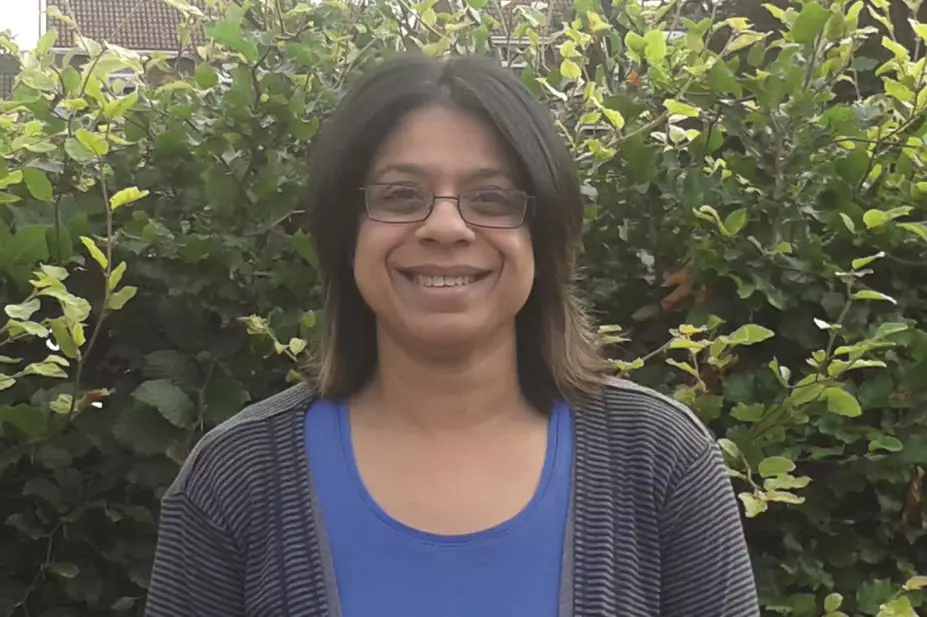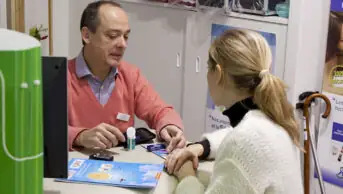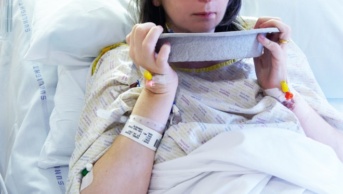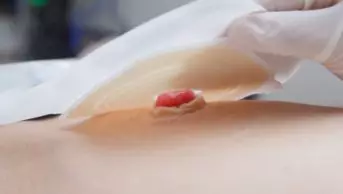
Priya Mistry has been working as the lead pharmacist in nutrition and peritoneal malignancy at Basingstoke and North Hampshire Hospital for 12 years. Here, she describes her role in surgery and the challenges she faces.
What career pathway led to your current role?
I always wanted to practise pharmacy in a clinical environment. I was introduced to surgical pharmacy in a rotational role in 1998 and, from there, went to a surgical directorate pharmacist position at Basingstoke and North Hampshire Hospital. I enjoyed working closely with the surgeons and doing daily ward rounds. I started taking more of an interest in colorectal surgery and I attended a nutrition course in Southampton in 1999. My interest in parenteral nutrition (PN) began to develop and this coincided with the trust becoming a centre for cytoreductive surgery for peritoneal malignancy — a procedure that removes the bulk of a malignant peritoneal tumour before using chemotherapy to eradicate the remainder.
In 2004, the trust also supported a new nutrition support team that needed a specialist pharmacist. At the time, having had a baby, I was seeking a part-time role and this was perfect. I was able to develop the post for the needs of the peritoneal malignancy service as well as help build the nutrition service throughout the hospital.
What does a typical day in your role involve?
I start my day doing the nutrition ward round with the dietitians. We review all patients in the hospital on PN plus any referred with complex nutritional needs. The non-PN patients may have high output stomas or abdominal fistulas with complex fluid, electrolyte and nutritional requirements. We usually see 15–20 patients per day. Around 60% of our work comes from the peritoneal malignancy unit and the remainder from critical care, surgery and medicine. As a non-medical prescriber, I take responsibility for all the PN prescribing, as well as prescribing intravenous fluids, electrolytes and stoma management medicines as appropriate.
After the ward round, if there are patients booked for cytoreductive surgery the next day, I will liaise with the surgical team then organise and clinically screen the prescription for the intra-operative intraperitoneal chemotherapy.
I remember the first time I saw intra-operative intraperitoneal chemotherapy being administered. Pharmacists are not usually permitted behind theatre doors. However, having taken on this role I needed to understand how the therapy was delivered. Complex as it sounds, it was actually a logical procedure. After the main surgery is completed and before the abdomen is closed, the patient is connected via tubes placed precisely in their abdomen to specially designed machinery that regulates the temperature and flow of a chemotherapy solution. This is an unusual way to administer chemotherapy and I was amazed by how the theatre team managed to follow strict protocols to keep the chemotherapy contained in a safe manner.
What do you enjoy most about your work?
I enjoy the patient-focused aspect of my role the most. Working in a tertiary centre I see patients from all over the UK and other parts of Europe. Many have left their families at home and need our support for their emotional as well as clinical needs.
Working in a team is rewarding. I have great working relationships with the nutrition and peritoneal malignancy teams. Over the years we have learnt a great deal from each other and I can now take on activities that would traditionally be carried out by dietitians, such as calculating nutritional requirements or managing enteral nutrition regimens. The nutrition team is respected throughout the hospital and provides a valuable service.
In 2014, we presented our audit data on ‘10 years’ experience of nutrition support in peritoneal malignancy’ at the International Congress on Peritoneal Surface Malignancies, Amsterdam. This has been my proudest moment.
What is the hardest challenge you have overcome in your career?
When I started my career as a surgical pharmacist 16 years ago, most surgeons I came across were not accustomed to having a pharmacist on their ward rounds. I was regularly faced with resistance when trying to implement any guidelines or give recommendations, particularly on the prescribing of antibiotics and PN.
Most pharmacists leave university with basic knowledge about different types of surgery and the implications this may have on post-operative management. At the time, my naivety (or youth) and lack of surgical understanding did not help my cause. Taking the time to obtain this knowledge helped me develop my expertise and eventually gain the respect of the surgeons. Communication and being visible around the hospital was also vital.
What is the best professional advice you have been given?
I spend a lot of time making decisions about the formulation of a PN regimen and a patient’s care plan. There is so much information to consider, such as the fluid balance, biochemistry and medicines, and it can be daunting to take it all in. A surgeon once said to me: “Keep it simple, Priya”. I have always thought that this is good advice — break a problem down into small manageable pieces and deal with them one at a time. Keeping the care plan simple is important so other healthcare professionals involved in the patient’s care will find it easy to understand and implement, which makes things safer for the patient.


